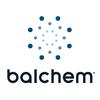Stress in the early days of calves: how to overcome this challenge?
Published: September 14, 2020
Source : Liliana Borges and Melina Bonato, R&D, ICC Brazil
The first week of the life of calves, which belongs to the calving phase, is the most critical period, as 50% of the first-year mortality rate occurs during this period, where various stressors strongly influence health.
Stress is a response of the animal's organism to a stimulus, and when it is associated with negative situations, reduced performance and productivity are inevitable, since animal health is affected, especially in the early days of life. Animals may suffer from different types of stress: psychological (management and new situations) or physical (hunger, thirst, fatigue, injury, or thermal extremes), leading to the onset of diseases and sudden drop in performance.
In the first week of life, calves do not have their passive immunity fully established, which makes them susceptible to neonatal diseases such as diarrhea and pneumonia, commonly found in farms, and this may lead to high mortality rates. Because of that, nutrition at this stage is key and a decisive factor for successful farming. For example, getting colostrum during the first hours of life provides antibodies to calves.
Colostrum has a high concentration of total solids, proteins, and high immunoglobulin levels (IgG, IgA, and IgM), the concentration of which decreases with the lactation period. It should be given quickly after birth, as immunoglobulins are more efficiently absorbed between 12 and 18 hours, and, after 24 hours from the birth, the amount absorbed is reduced.
During breastfeeding, solid foods are gradually introduced and are crucial for rumen development, leading the animal to transition from a monogastric to a ruminant (polygastric). Because of that, food management during weaning has a big impact on avoiding stress, digestive problems, and food rejection.
In the market, we can find natural additives which are capable of providing compounds that stimulate the body to respond more efficiently to stressful stimuli imposed by the field. Many of these additives are used to provide immunity support and prevent pathogen contamination, offering an improvement in overall health.
Yeasts are widely used in ruminant nutrition, showing several proven benefits. RumenYeast® is a pure Saccharomyces cerevisiae yeast subjected to autolysis, where its internal cellular content is overflown, still containing soluble solids by fermentation of the medium. The final product consists of vitamins, peptides, free amino acids, and functional carbohydrates such as MOS and β-glucans.
Two tests were performed on a commercial farm in Russia with Dutch calves. The first test was performed with calves from birth to days. Fifty calves were divided into two groups, a control group and a group supplemented with RumenYeast® (10 g/animal/day). These animals were fed colostrum and milk. Intestinal disease incidence and survival rates up to 10 days of age, as well as body weight gain from birth to two months of age, were analyzed.

According to Graph 1, we observed that RumenYeast supplementation provided a 65% reduction in the incidence rate of intestinal diseases and a 50% reduction in the mortality rate.

RumenYeast supplementation from birth to ten days of age provided increased body weight gain, with 7.3% more in the first month and 10.9% in the second month of age. It also led to a daily weight gain greater than the control group, 25% from birth to the first month and 28% from the first to the second month of age (Table 1).
The second test was performed with calves from 10 to 30 days of age, the transition period from liquid to a solid diet. Fifty calves were divided into two groups, a control group and a group supplemented with RumenYeast® (10 g/animal/day). The animals were infected with rotavirus enteritis but were healed before the start of the test. The parameters analyzed were the incidence rate of intestinal diseases, respiratory disorders and days of disease duration up to two months of age, as well as weight gain from ten to two months of age.


Supplementation with RumenYeast reduced the incidence of intestinal diseases by 27% and the incidence of respiratory disorders in 35% (Graph 2), as well as reduced the duration of intestinal and respiratory diseases, and diarrhea (Graph 3).

RumenYeast provided a higher body weight than the control group by 6.3% in the first month and 13.5% in the second month. It also led to an average daily gain improvement of 49% compared to the control group (Table 2).
The results of these tests confirm that RumenYeast was effective in reducing stress in the first days of life, which are considered the most critical phase, offering better overall health and, consequently, better performance to these animals.
Ensuring adequate management, nutrition, and health during the first days of life for calves is key to performance, as we can see from the results shown. Therefore, providing natural additives that offer adequate support to calves so they can better respond to the challenges and stressful stimuli imposed by the field is of the utmost importance in intensive farming systems. RumenYeast, in addition to being a source of vitamins, peptides, and free amino acids, provides functional carbohydrates such as MOS and β-glucans, conferring great benefits to the nutrition and health of ruminants.
GRANDIN, T. Assessment of Stress During Handling and Transport. Journal of Animal Science 1997, 75: 249- 257.
MARTUSCELLO, J. A.; LIZIEIRE, R. S.; CUNHA, D. N. F. V.; CAMPOS, O. F. Efeito da substituição parcial de concentrado inicialpor feno de coastcross sobre a performance de bezerros desaleitados precocemente. Rev. Univ. Rural, Rio de Janeiro, v. 24, n.2, p. 119-124, 2004.
.WATTIAUX, Michel A. Essenciais em Gado de Leite: Criação de novilhas do nascimento à desmama - observações gerais sobre algumas práticas de manejo. University of Wisconsin-Madison, Instituto Babcock para Pesquisa e Desenvolvimento da Pecuária Leiteira Internacional. 2011.
Related topics:
Authors:
ICC Animal Nutrition
ICC Animal Nutrition
Influencers who recommended :
Liliana Longo BorgesRecommend
Comment
Share
Recommend
Reply
30 de octubre de 2020
Hello. Very interesting. I think I understand yeast mode of action in ruminating animals, but can you explain the mode of action in the pre-ruminant calf? Thanks M
Recommend
Reply
Recommend
Reply
21 de marzo de 2021
Is the product available in Latvia (EU)?
Can you give us more information on the product, and the address of the distributor?
Recommend
Reply
Recommend
Reply
Recommend
Reply
Recommend
Reply
Recommend
Reply
28 de octubre de 2020
Is the product available in Europe? At what name? Can you give us more information on the product, and the address of the distributor?
Recommend
Reply

Would you like to discuss another topic? Create a new post to engage with experts in the community.













